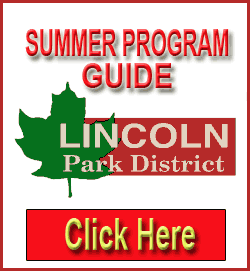|
 He gives more speeches, lingers less among the people at events and spends more time raising money in private. He gives more speeches, lingers less among the people at events and spends more time raising money in private.
"My best venue and my most enjoyable venue, frankly, is a town-hall meeting because I learn and I listen and I get in touch with people," the Arizona senator said during a question-and-answer session in Greendale, Wis.
But gone are the days when the Republican presidential hopeful would spend a day holding several of his hallmark ask-anything events and making surprise visits to local establishments. Constraints of time, logistics and priorities are taking over.
His daily interaction with the reporters who travel with him also has tapered off; more formal news conferences every few days are becoming the norm, partly out of a desire to project a precise message
-- and picture.

McCain acknowledges the changes, but told The Associated Press he would continue to press his advisers to make sure he has time in his schedule for the media and give-and-take with voters in town hall style settings. "We'll have more of those. I love those. They're the most important thing," he said.
After wrapping up the GOP nomination in March, McCain openly worried about "losing the flavor of the campaign" and abandoning the impromptu style that put him on the national political map in 2000 and that helped bring him a primary victory eight years later.
At the time, he said: "We can't play it safe. We tried that once."
Nonetheless, McCain's interactive style of campaigning largely has given way to a more conventional approach as he's tried to adapt to the necessities of a national campaign. Chief among them: reaching a broader electorate and raising heaps more money.
That's meant a diversion of sorts from an approach that has served him well for nearly a decade. These days, order and discipline often outweigh spontaneity and accessibility.
Given that campaign behavior tends to translate into actions in office, it's fair to ask whether if elected he would follow through on such campaign pledges as holding weekly news conferences and sitting for British-style public question periods with joint meetings of Congress. Or would he give in to the traditional buttoned-down trappings of the White House.

"That's a pretty big leap," said Jill Hazelbaker, McCain's campaign spokeswoman. She called McCain's shift a natural evolution of a presidential bid as it turns from a state-by-state primary campaign into a coast-to-coast general election campaign.
"It's a helpful and productive transition. He's still the most accessible candidate in the history of presidential campaigns, and the contrast with our opponent is significant in terms of access to the media and the style that he brings to the campaign trail," Hazelbaker said.
[to top of second column] |
 Indeed, Obama holds question-and-answer events less frequently and goes for long stretches without talking to the reporters who travel with him. But, unlike McCain, the Illinois senator gives access to at least some of his fundraisers.
In some ways, change was inevitable for McCain.
During a general election, more time is spent covering as much ground in as many states as possible, which means less time to chat up voters. There's also an imperative to raise money; McCain struggles on that front while Obama breaks records.
Another priority: introducing himself to the public at large and fleshing out the details of his vision. That's meant carefully planned made-for-TV tours of important places in McCain's life and regions he said have been left behind. He's also been delivering at least one major speech a week on everything from the housing crisis and taxes to climate change and health care.
Advisers stress the need for "message discipline," given that his open style means he sometimes "makes news" when it's not intended. A speech near the U.S. Naval Academy, his alma mater, was largely ignored. Instead, his abrupt disclosure that a list of some 20 vice presidential prospects existed made headlines.

To prevent such muddying, McCain now holds more scripted appearances and limits interaction with the media.
Advisers say the summer and fall will bring more town-hall style events and other opportunities to interact with voters. The campaign also is spending tens of thousands of dollars to reconfigure his plane to allow for more time with reporters
-- and better pictures.
McCain's schedule reflects his priorities.
He gave two speeches last week, on Memorial Day and on nuclear nonproliferation. He held two formal news conferences but never ventured to the back of the plane to talk with reporters. He did two question-and-answer events with voters. A third was canceled; McCain blamed scheduling problems. He also did nine private fundraisers.
After each public event, he spent five minutes at the most swiftly shaking hands on the "rope line," the barrier separating him from the audience now that he has Secret Service protection
-- another change that came with the transition.
[Associated
Press; By LIZ SIDOTI]
Copyright 2008 The Associated
Press. All rights reserved. This material may not be published,
broadcast, rewritten or redistributed.
 |